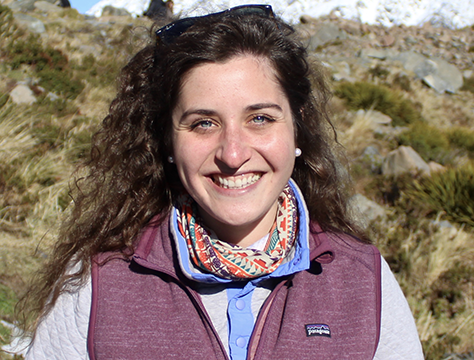When Julie passed out on the mountain,
our first thought was hypothermia.
All day we’d hiked in the rain
through thigh-high creek crossings.
March, the rhododendrons not yet in bloom.
We climbed Yellow Buck Mountain
with wet wool socks puckering our feet.
A grim percussion: those water-logged
footfalls and our rattling teeth.
We’d been trained, warned
about the soaked woods of early spring:
how water steals a body’s heat
at 24 times the rate
of air the same temperature.
\\
Growing up, my mother taught me
you can tell if someone’s anorexic
by the too-sharp bend in her limbs.
Each time she pointed to girls at the mall,
I studied my mother’s arm instead:
the diamond bracelet on her wrist,
how easily it slid to the crook of her elbow.
\\
Trail food is high in carbohydrates
but no one wants to pause in the cold rain
to eat a peanut butter tortilla.
Julie sulked while the group ate lunch—
only nibbled, said she wasn’t hungry.
Later, when she lost consciousness,
we misdiagnosed her symptoms.
We overlooked that when salt and sugar
leave the body, this is the crux.
\\
As a child, I pushed green beans
around my plate and asked my mother:
Did I eat enough to have dessert?
As a teenager, I sliced steak into bite-sized pieces,
arranged them in small piles, and asked myself:
Did I eat little enough to have dessert? So it goes
for many, so it went for me.
\\
Julie, can you hear me? Julie, please
wake up. No response. No response
to a shoulder pinch or sternum rub.
Dark strands of hair escaped her ponytail
and stuck to her pale wet face, blank
as a bowl of whole milk.
We stripped her bare but for
her sports bra and underwear
and zipped her into her dry sleeping bag.
We made a shelter with foam mats,
her body small from years of opiates.
In blue ink, I wrote her vitals on my arm,
then pulled my sleeve down and stood
beneath a hole in the leaf coverage,
in fullest rain, trying not to lose
the operator on the satellite phone.
\\
I found friends in school who taught me
about after-meal rituals in bathroom stalls.
We shared scraped knuckles and fainting
fantasies. We kept short lists of permissible
foods. It was thrilling, being in it together:
a secret, a common goal.
\\
Ma’am, what is your emergency?
The operator’s words were surreal,
her distant voice crackling, breaking up,
but still a small comfort.
Shock is common in first responders.
She urged me to put dry socks on,
warned me I might shiver, too.
\\
I used to be the type to tag along
when someone decided to be unwell.
\\
There in the wilderness in the rain,
sirens switchbacked toward us.
Their high pitch went in and out,
in and out, the sound moving closer
then further like an ice cream truck
circling your neighborhood,
taunting you with its jingle.
I imagined a pulse of red lights
bathing our faces like a movie scene,
though the EMTs arrived on foot,
a stretcher strapped to one man’s back.
They didn’t care about
the vitals I’d recorded, the blue
ink smudged on my arm.
Julie, they said, Julie.
They injected something into her vein.
It was medicine or magic
or mercy enough to open her eyes.
With a wan face and sugar-sick blood,
she came back to us,
and I, too, was spared.

